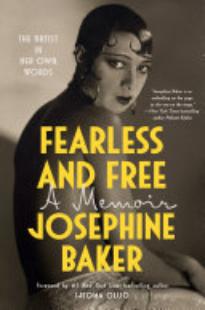2018 School Spending Survey Report
Fearless and Free: A Memoir
Tiny Reparations.
Feb. 2025.
320p.
tr. from French by Anam Zafar & Sophie R. Lewis.
ISBN 9780593853696. $32.
MEMOIR
COPY ISBN
VERDICT This dialogue with Baker revels in her poetic and often humorous way of speaking. Pair with Chris Chase and Jean-Claude Baker’s authoritative biography Josephine Baker: The Hungry Heart.
RELATED
ALREADY A SUBSCRIBER? LOG IN
We are currently offering this content for free. Sign up now to activate your personal profile, where you can save articles for future viewing




Comment Policy:
Comment should not be empty !!!